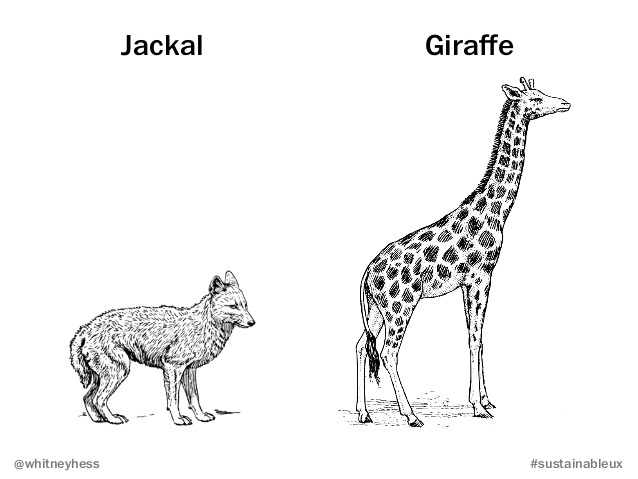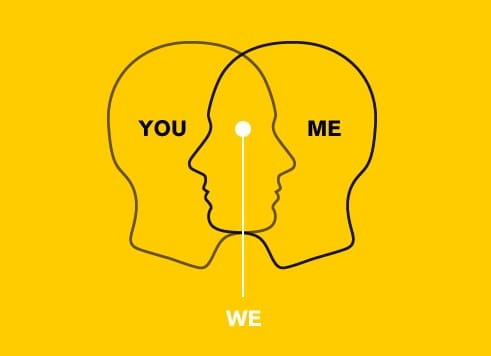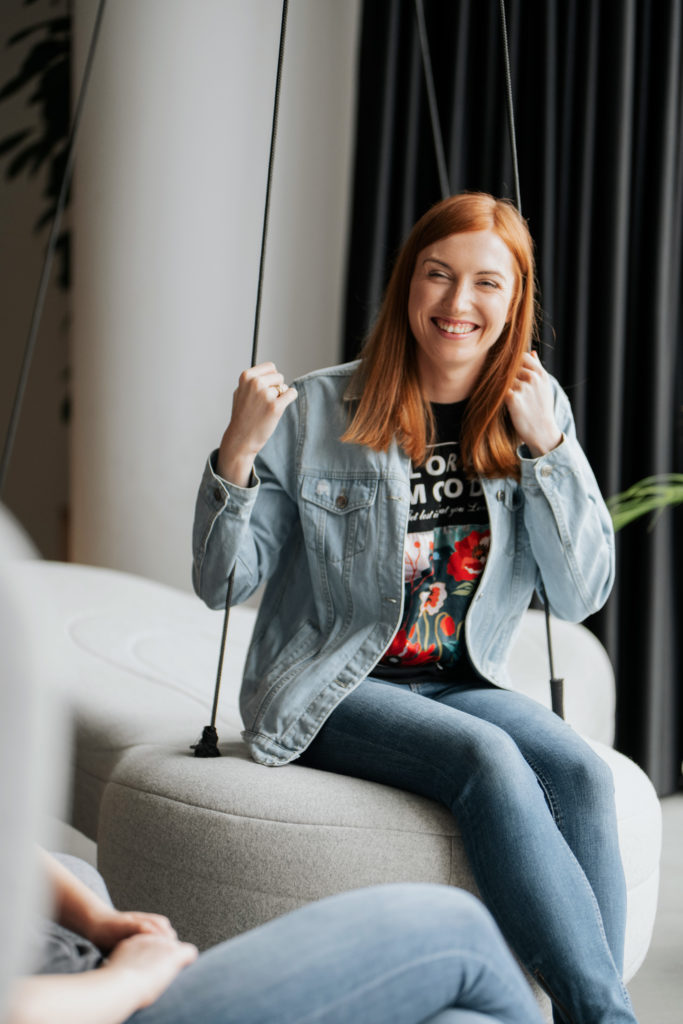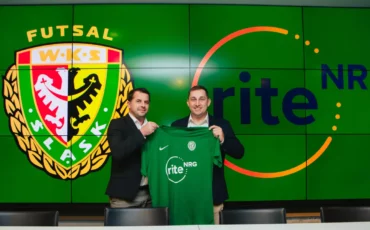Relationships building is an integral part of our lives. We bond with different people and establish relationships on various grounds, both private and professional. The topic is more significant than we often realize. In our everyday life, we constantly interact with other people. Regardless of our profession, in most cases, our job requires cooperation with other people. Sometimes we plan not only joint projects with colleagues or vacation with family but also our whole life shared with partners. What could help us navigate a healthy relationship?
RELATIONSHIPS IN RECRUITMENT
In recruitment, relationships are inevitable. There are at least two parties involved in a recruitment process: a candidate and a recruiter. The candidate is focused on their career. The recruiter is focused on finding the best candidate for the position. They both have their own priorities and needs. It would be too simplistic to say that the recruitment process is just an exchange of information. In fact, to be successful, the candidate and recruiter need to establish a healthy relationship in order to communicate effectively, understand each other, and be able to really hear the other person.
Active listening is important to avoid difficulties during the process, and it is crucial in making right decisions. It goes both ways: this is the only way for the candidate to be sure that they are doing a good move when accepting the offer. And only then the recruiter can assess whether the candidate is a truly good match for the position, for the team and for the organization. And here comes a question: what is the key to navigate building a successful relationship between a candidate and a recruiter? The answer is: nonviolent communication.
CASE STUDY #1: FAMILY VACATION
One of the key elements of a healthy relationship is understanding each other’s point of view and expectations. Let’s take a family vacation as an example. Imagine that a wife and husband are planning to take a week off and go somewhere to enjoy their free time and rest. It is important for both of them to understand what “resting” means to their partner. While for somebody lying on the beach for seven days in a row is a perfect vacation time, for someone else it might sound like a nightmare. Some people would really prefer to hike in the mountains or visit some exciting museums and exhibitions instead. So, if they’re planning a trip together, what could they do if their preferences differ?
What they should start with is to carefully listen to each other to understand their partner’s needs. Active listening is simply essential. But there’s more to that. What they should also focus on is nonviolent communication, also called “giraffe language.” It is a way of communicating that triggers empathy. The opposite of “giraffe language” is “jackal language”: a way of communicating that blocks empathy and escalates conflicts.

GIRAFFE LANGUAGE AND JACKAL LANGUAGE
Jackal language manifests when we use expressions that are judgmental or disqualify someone’s behavior or views. Often, we are not aware of using jackal language, as this way of talking may be already our habit. An example of jackal language would be for a wife to say to her husband: “Oh, you are so lazy that you don’t want to go on a two-day hike to the mountains! You always want to lie on a beach and read a book!”
Instead of judging, it’s better to let the other person know about our feelings and needs. Instead of making demands, it is better to express a request. Our wife could say the following: „I would be very happy if during our vacation we could take a two-day hike in the mountains. I feel like I need to break away from everyday life, walk, and think about a few things because I’m a little tired. We spent very little time being physically active lately, and I thought that would be a great opportunity. I would be glad if you would go with me and be my companion. What do you think?”
Here, she practically used a Model of Empathic Communication. She has described observed activities, expressed her emotions, presented her needs, and specified her request to the other person. She made it possible for her husband to understand her. He would be probably much more open to the idea and could possibly also benefit from it. By trying to understand why another person needs to rest in a certain way, he can also take advantage of it and experience something new – something he would not have tried otherwise. By being open to the suggestions of others, we have the opportunity to learn new things.

A KIND OF A MARRIAGE: EMPLOYER AND EMPLOYEE
A marriage is two people who share a strong bond. These people consciously decided to form a formal relationship. Each of them has certain needs. They enter a relationship already having certain experiences. They have a common goal; they want to create a successful relationship in which they will be happy and fulfilled. Usually, they have the same or similar values that guide them in life. They take care of each other, try to listen carefully, and be open to the needs of the other person.
An employer and employee also develop a relationship and form a kind of partnership. During the recruitment process, these two parties are just getting to know each other, and then decide whether to bond formally or not. I’ve heard more than once from clients after an interview: “Well, the candidate was technically good, but to be frank, there was no x-factor there.” That’s the point: in recruitment, there’s much more to focus on than only tech skills. Companies are not only looking for experts and specialists in a given field but also pay attention to the candidate’s personality and cultural fit with the organization. And therefore, the way a candidate communicates during the interview is often crucial.

MUTUAL MATCH: THE CANDIDATE ASSESSES AS WELL
A recruitment process is not a candidate’s hearing anymore. In the past, it was a one-sided process. Nowadays the assessment goes both ways. It means that the candidate also evaluates both the recruitment process and the organization. Both sides pay attention to similar things, but each of them looks through the prism of their own needs. If they share common ground and there’s “chemistry” in the room during the interview, they will probably decide to build a relationship. And this is an important decision because work takes up most of our lives. By choosing an employer or an employee we basically decide with whom we will spend a good chunk of our everyday time, no matter if we’re working in the office or remotely.
When I call a candidate after a meeting and ask how it went, I often hear: “It was a good conversation. The meeting was great, I really liked the company’s goals and their profile,” or “It was a very positive meeting, the company made a good impression on me – I have to say that it’s one of the most interesting tech interviews I’ve ever had. The company itself, and the employment offer, seem like exactly what I’ve been looking for.” When the candidates share such feedback, I know then that if the company’s feelings are similarly positive, there is a good chance that the relationship between them will be satisfactory for both parties.
CASE STUDY #2: TEAM LUNCH
Let’s take another example. Let’s say, your team is having lunch together. You’re sitting at one table, the weather is great, the sun is shining and so you decide to order a big bottle of lemonade. When it arrives, the manager asks all of you to tell what you see when you look at the bottle. Someone would probably say that they see the lemonade’s name. Another that they see the list of ingredients. Someone else would say they see an image of a lemon, the next one that they see a picture with mint leaves in it.
All of you look at the very same bottle of lemonade, but each of you sees it from a different angle. Is it a bad thing? If you can’t see what your colleague sees, are you in a place to deny what they say? Or should you rather trust that if they say something, they have a reason for it due to what they see, what they know, and what they experience? Could you maybe try to understand their point of view?

THE OTHER POINT OF VIEW
The point is that if we have a relationship with someone, we should be ready to hear and take their answers to our questions – not our imaginary answers based on our knowledge, our feelings, and our experiences. It’s worth to be always ready for a completely different point of view and an answer we would least expect. It’s important to treat it with respect when expressing our standpoint. Again, the key to that is nonviolent communication.
By applying nonviolent communication, we can make our relationships stronger and healthier. Most certainly we can apply it at work, whenever we cooperate with anyone: be it a joint project or initiative, be it brainstorming over a problem, be it a recruitment process, and inviting a new person to our organization. To avoid disappointments and build a friendly and open atmosphere, we can always consciously build a relationship based on mutual respect, active listening, and openness.
Oliwia Wangryn-Jaworska
IT Career Advisor & Team Building Expert w Rite NRG
In my work, I focus on building relationships. I am a liaison between candidates and companies, listening closely to the needs and expectations of both sides, and then trying to find the perfect match and satisfactory solutions.
In my free time, I like to spend time in nature, biking, or lying on a deckchair with a nice cup of coffee and a good book. My friends and family are an important part of my life – they give me the energy to move forward.






